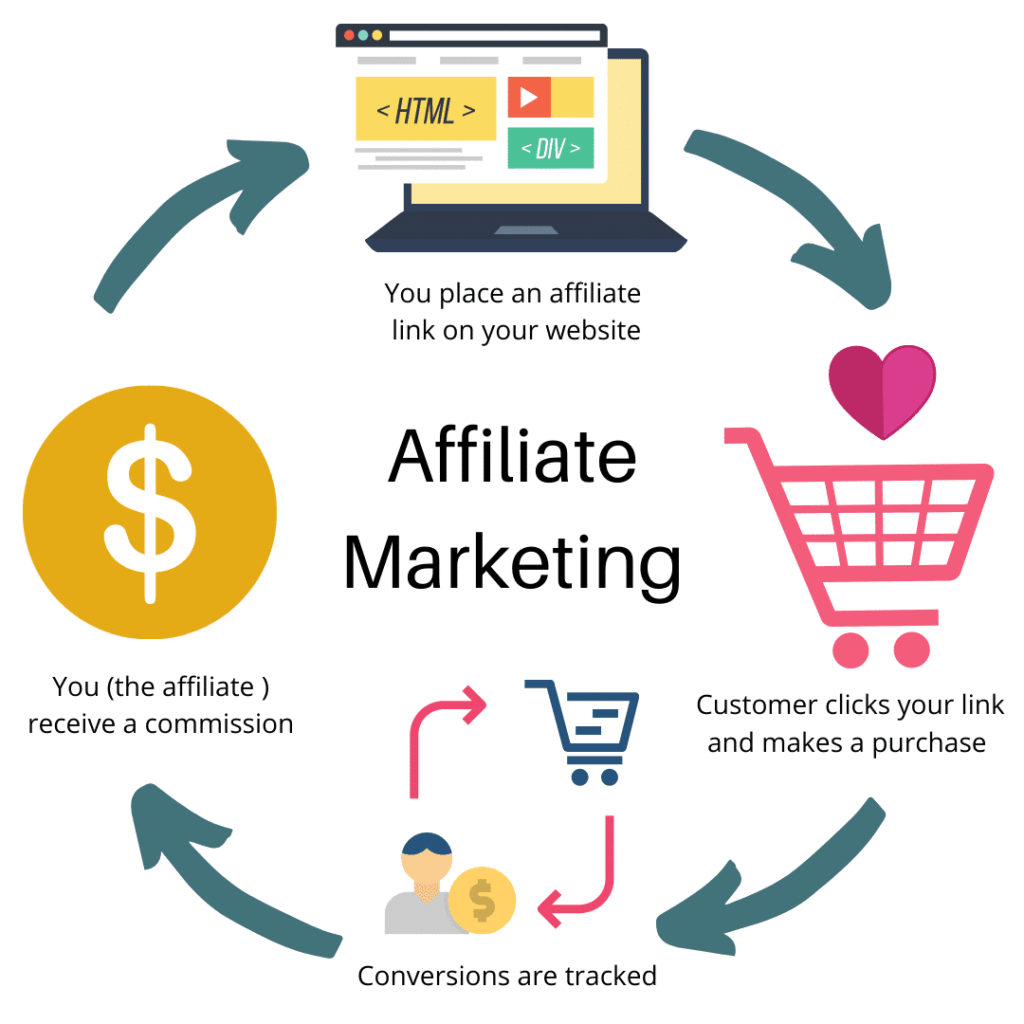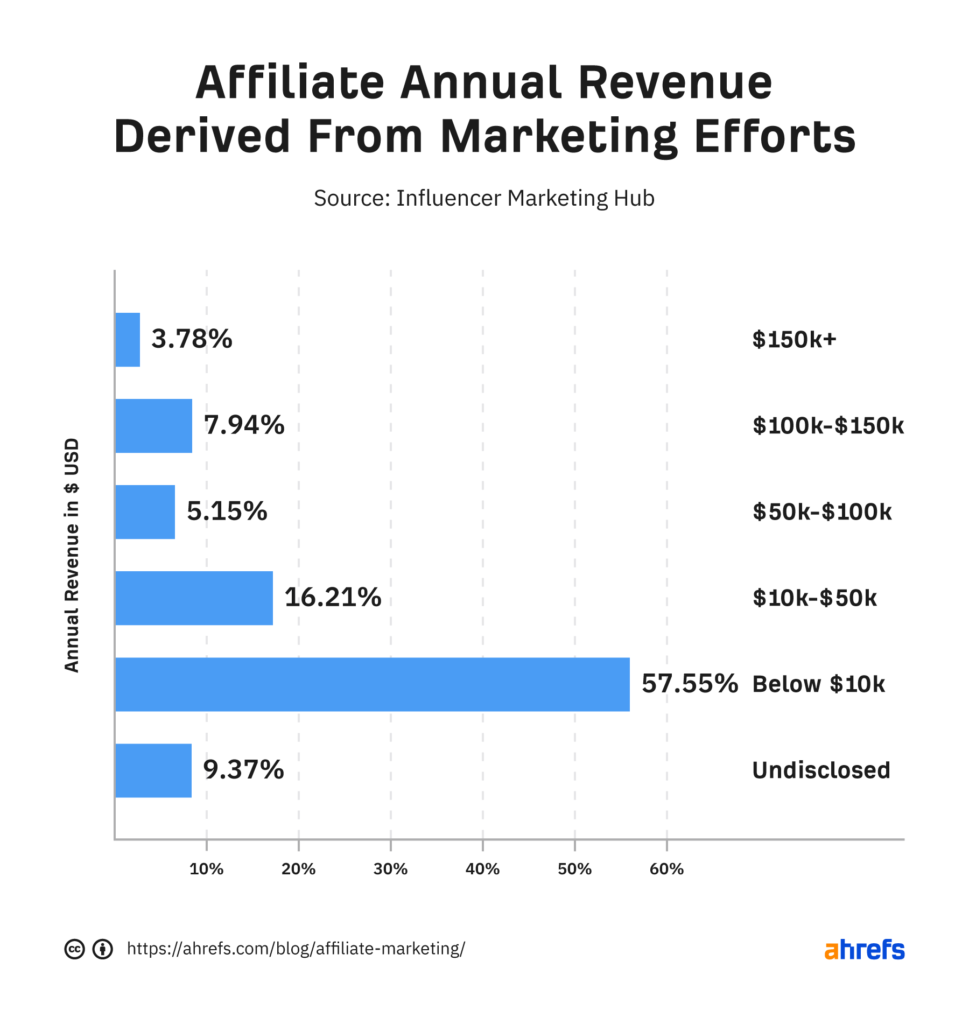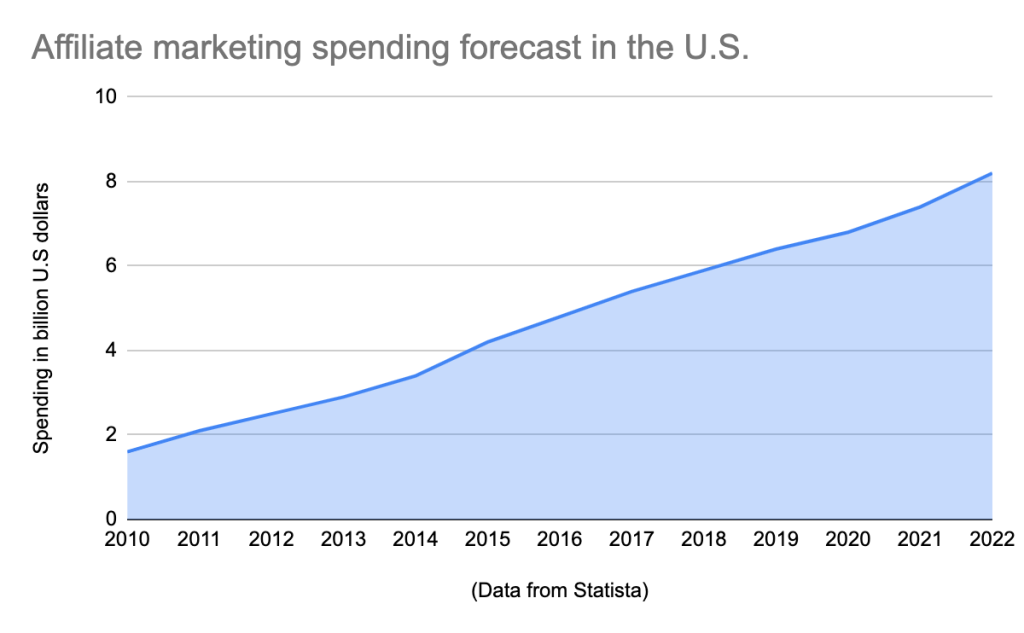Affiliate marketing strategies and tips: Are you a blogger looking to monetize your website? Affiliate marketing may be just the solution you need. By promoting products or services on your blog and earning a commission for each sale made through your unique referral link, you can turn your passion for blogging into a profitable business. In this post, we will share some effective affiliate marketing strategies and tips to help you maximize your earning potential.

Affiliate marketing strategies: Choose Products Relevant to Your Niche
The key to success with affiliate marketing is to promote products or services that are relevant to your blog’s niche and audience. This not only ensures that your readers are interested in what you are promoting but also increases the chances of them making a purchase through your affiliate link.
here are some points to consider when choosing products relevant to your niche:
Consider your audience: Think about the demographics of your audience, their interests, and what they may be looking for from your blog. Choose products that align with their needs and desires.
Look at your niche: Consider the topics you typically cover on your blog and the types of products that would naturally fit within those categories. For example, if you blog about health and wellness, promoting health supplements or fitness gear would be relevant.
Research affiliate programs: Look for affiliate programs that offer products related to your niche. There are many affiliate networks and marketplaces that you can browse to find relevant products.
Evaluate the product: Before promoting a product, evaluate its quality and value. Is it something you would use or recommend to others? Does it provide value to your audience? Avoid promoting products solely for the purpose of earning a commission.
Consider your brand Affiliate marketing strategies : Promoting products that are relevant to your brand and align with your values and mission can help strengthen your reputation and build trust with your audience. Make sure the products you promote are consistent with your overall brand image.
Be Honest and Transparent
As a blogger, your readers trust your opinion and recommendations. It is important to be honest and transparent about your affiliate partnerships and only promote products that you genuinely believe in. This builds trust with your audience and can lead to more conversions in the long run.
Use Multiple Platforms for Promotion
Don’t limit yourself to promoting affiliate products only on your blog. Utilize social media platforms like Instagram, Facebook, and Twitter to reach a wider audience and increase your earning potential. You can also create YouTube videos or podcasts to promote your affiliate products.
here are some points to keep in mind when using multiple Affiliate marketing strategies:
- Identify which social media platforms your target audience uses most frequently. Create unique content for each platform that showcases your affiliate products in a way that resonates with the specific platform’s audience. Make use of social media ads to increase your reach and target your audience more effectively. Consider creating video content that showcases your affiliate products and how they can benefit your audience. Use email marketing to promote your affiliate products to your email list. Collaborate with other bloggers or influencers in your niche to reach a wider audience. Utilize podcasts or live streams to promote your affiliate products in a more interactive way. Test and experiment with different platforms to see which ones are driving the most conversions and focus your efforts there.
Optimize Your Affiliate Content for SEO
To increase your chances of ranking in search engines and driving organic traffic to your blog, it is essential to optimize your affiliate content for SEO. Use relevant keywords in your blog posts and meta descriptions, and create high-quality content that provides value to your readers.
- Conduct keyword research: Use keyword research tools to identify relevant keywords and phrases that people are searching for. Include these keywords in your content to improve its visibility in search results.
- Focus on long-tail keywords: Long-tail keywords are more specific and have less competition than broad keywords. Use long-tail keywords in your content to target a specific audience and increase your chances of ranking higher in search results.
- Create high-quality content: Write engaging, informative, and original content that provides value to your readers. Google rewards high-quality content with better search rankings.
- Use descriptive and compelling titles: Use descriptive and compelling titles that accurately reflect the content of your article. This can improve click-through rates from search results.
- Optimize meta descriptions: Meta descriptions are short snippets of text that appear in search results. Use them to summarize your content and entice users to click through to your site.
- Use header tags: Use header tags (H1, H2, H3) to structure your content and make it easier for readers to navigate. This also helps search engines understand the structure of your content.
- Use internal linking: Link to other relevant content on your website to help users find more information and improve your website’s overall SEO.
- Use external linking: Link to high-quality, authoritative websites that are relevant to your content. This can improve the credibility of your content and improve your search rankings.
- Optimize images: Use descriptive and relevant image filenames and alt tags to improve the visibility of your images in search results.
- Use social media: Share your content on social media to increase visibility and attract more visitors to your website. This can also help build backlinks to your site, which can improve your search rankings.
Track Your Results and Adjust Your Affiliate marketing strategies

Track your affiliate links’ performance regularly and adjust your Affiliate marketing strategies accordingly. Use tools like Google Analytics to monitor your conversions, click-through rates, and earnings. This allows you to identify what is working and what isn’t, and make changes to improve your affiliate marketing efforts.
Tracking your results and adjusting your strategy is crucial for optimizing your affiliate marketing efforts. Here are some points to consider when tracking your results and adjusting your strategy:
- Use Analytics Tools for your Affiliate marketing strategies: Use analytics tools like Google Analytics to track your website’s traffic, conversion rates, and user behavior. This data will help you understand which of your affiliate marketing efforts are working and which aren’t.
- Identify Your Best-Performing Affiliate Programs: Look at the data and identify which of your affiliate programs are performing the best. Determine the conversion rates, earnings per click, and other metrics that are important to your Affiliate marketing strategies.
- Experiment with Different Promotions: Test different promotions to determine which work best for your audience. For example, you might try promoting products through email campaigns, social media, or blog posts to see which generates the most clicks and conversions.
- Optimize Your Content Affiliate marketing strategies: Use the data you gather to optimize your content for SEO and conversions. Focus on the topics that are generating the most traffic and conversions, and refine your content to improve its relevance and appeal to your audience.
- Continuously Evaluate and Refine Your Affiliate marketing strategies: Affiliate marketing is an ongoing process, so it’s important to continuously evaluate and refine your strategy. Stay up-to-date on industry trends, experiment with new tactics, and refine your approach based on the data you gather.
By tracking your results and adjusting your Affiliate marketing strategies, you can optimize your affiliate marketing efforts, maximize your earning potential, and create a profitable business through your blog.

In conclusion, Affiliate marketing strategies can be a lucrative way for bloggers to monetize their website. By choosing relevant products, being honest and transparent, using multiple platforms for promotion, optimizing your content for SEO, and tracking your results, you can maximize your earning potential and turn your blog into a profitable business.








